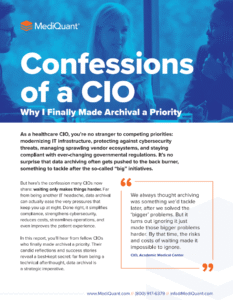De-risking HIPAA Compliance with Automation
Regular reporting is critical for HIPAA compliance. It helps you:
- Demonstrate compliance with audit trails and access logs
- Be audit-ready with reports already in hand.
- Detect risks early by monitoring inappropriate actions or unauthorized access
NEW Enhancement: Favorite & Automate Reports
You can now save the HIPAA Log Report as a favorite. Once saved, you can:
- Run the report
- Schedule it to run later
- Edit the name and description field
- Delete reports you no longer need
This means your HIPAA reports run automatically and can be scheduled daily, weekly, or monthly.
How to Schedule a Report
- Simply save the report as a favorite report
- Think of favoriting a report as saving the report template

Once a report is saved to favorites, it can be found under the Reports menu.

Within the Favorites menu, a user can schedule the report daily, weekly, or monthly by clicking Add Report Schedule.

To find the details of the scheduled report, click on Scheduled in the Reports menu. The scheduled reports screen allows users to modify existing scheduled reports and check their generation status.

Once the scheduled report has been generated, you will see it appear on the Saved Reports screen (click on the Reports menu to see the Saved Reports). This is where you’ll see all the versions of your scheduled report.

To recap:
- Want to schedule a report? Favorite it first!
- Scheduled Reports: Review or edit all the reports that are set to run on a recurring basis.
- Saved Reports: Access each version of your scheduled reports.
Questions? Want a demo? Let’s connect.
More Thought-Leadership
The Most Important Tech Investments Hospitals are Making and Why
In collaboration with Becker's Hospital Review Amid today's extremely challenging financial environment, hospitals are focused on adopting technology that can drive efficiency, provide return on investment and strengthen team cohesion and buy-in. During an...
The Case For An Active Data Archive After Acquisition — 5 Takeaways For Health Systems
By Cindy Adkins After making acquisitions, healthcare organizations want to use the same enterprise systems across all facilities, which raises the question about what to do with the legacy systems and data. During a June featured session sponsored by MediQuant as...
How Health Systems Can Comply with Information Blocking Provisions of the Cures Act
In Collaboration with Becker’s Hospital ReviewFor years, the question of who actually owns patient healthcare data loomed unanswered. With the passage of the 21st Century CURES Act, this issue has been definitively resolved: health systems and providers do not own...
Contact Us Today







